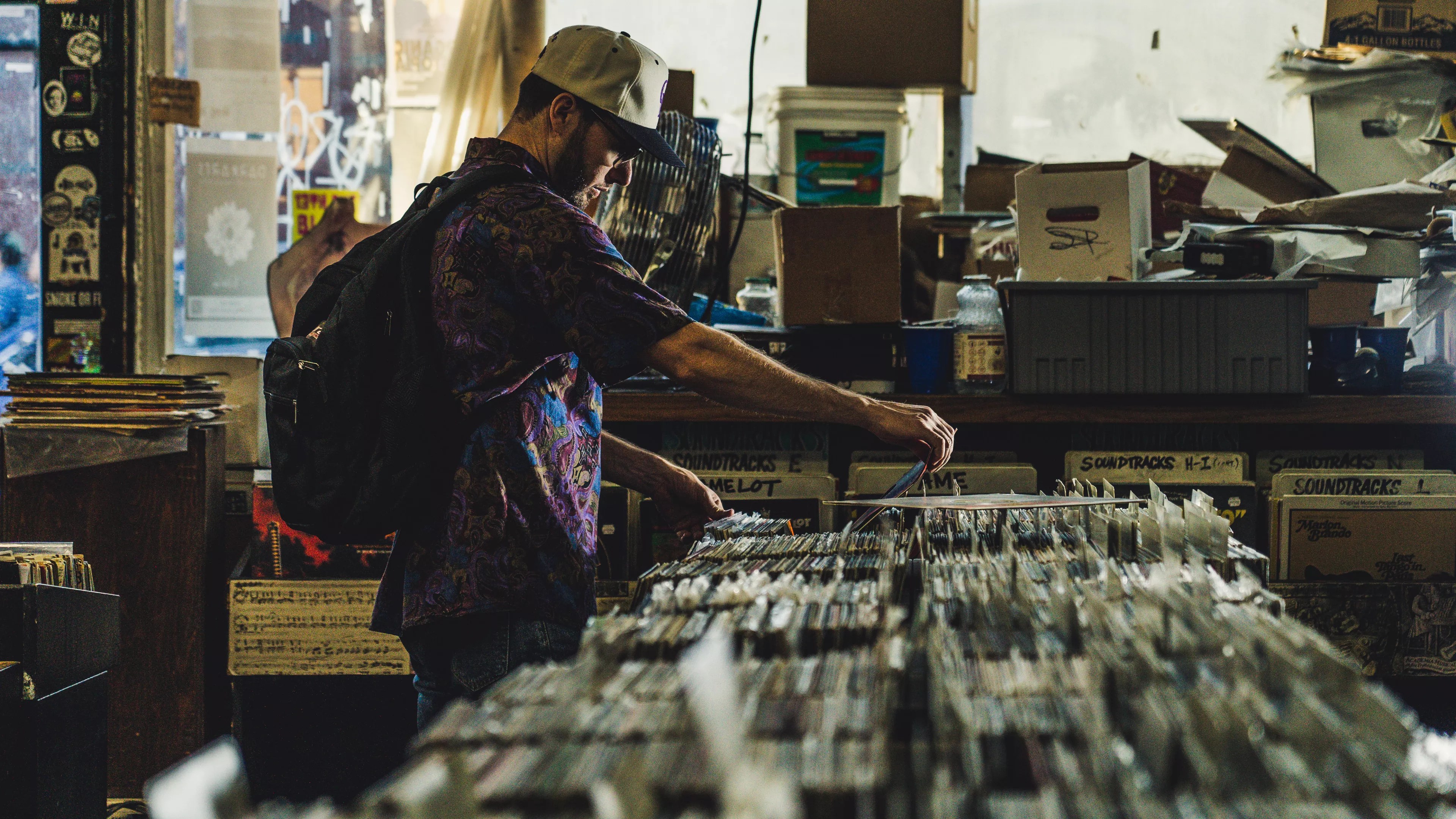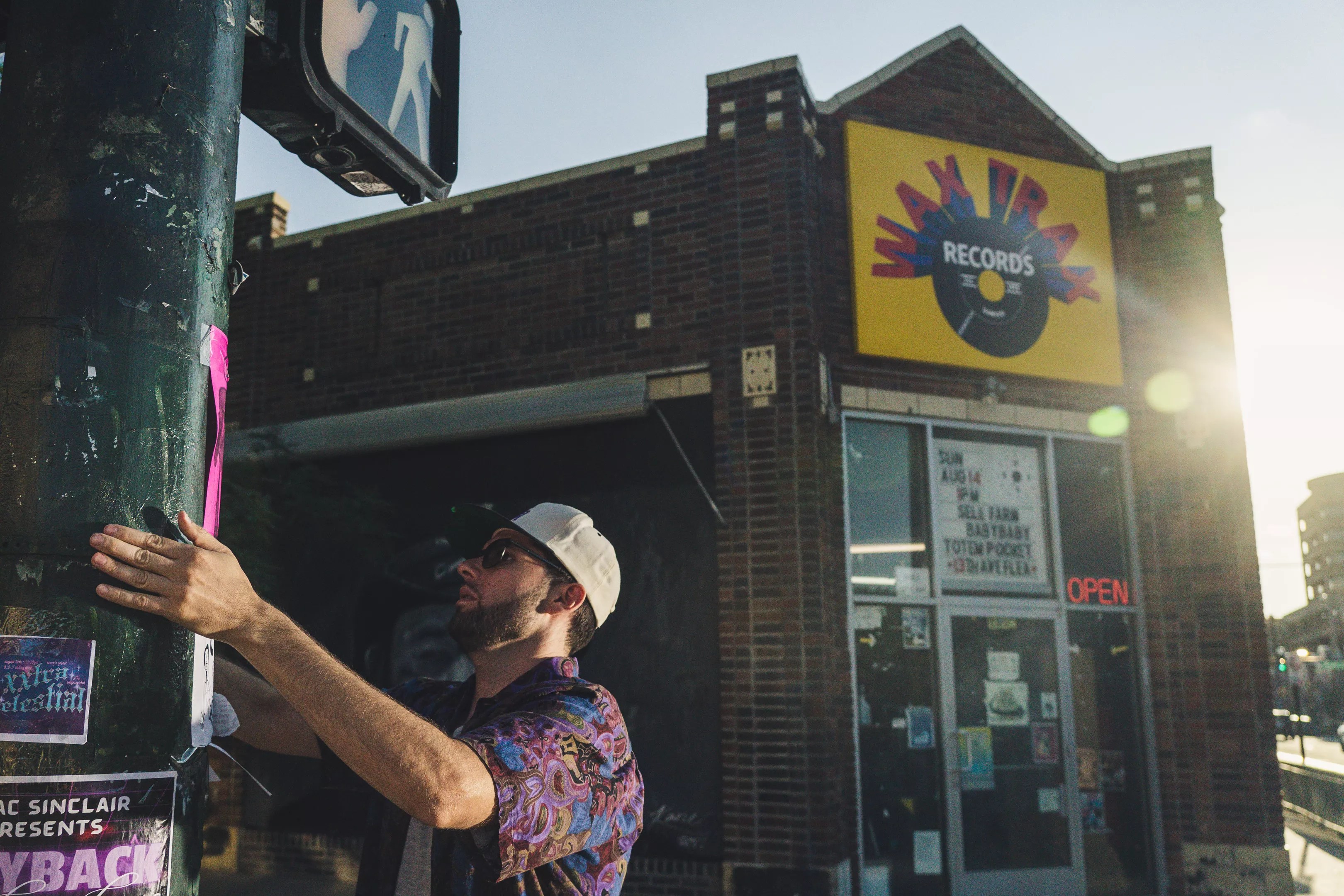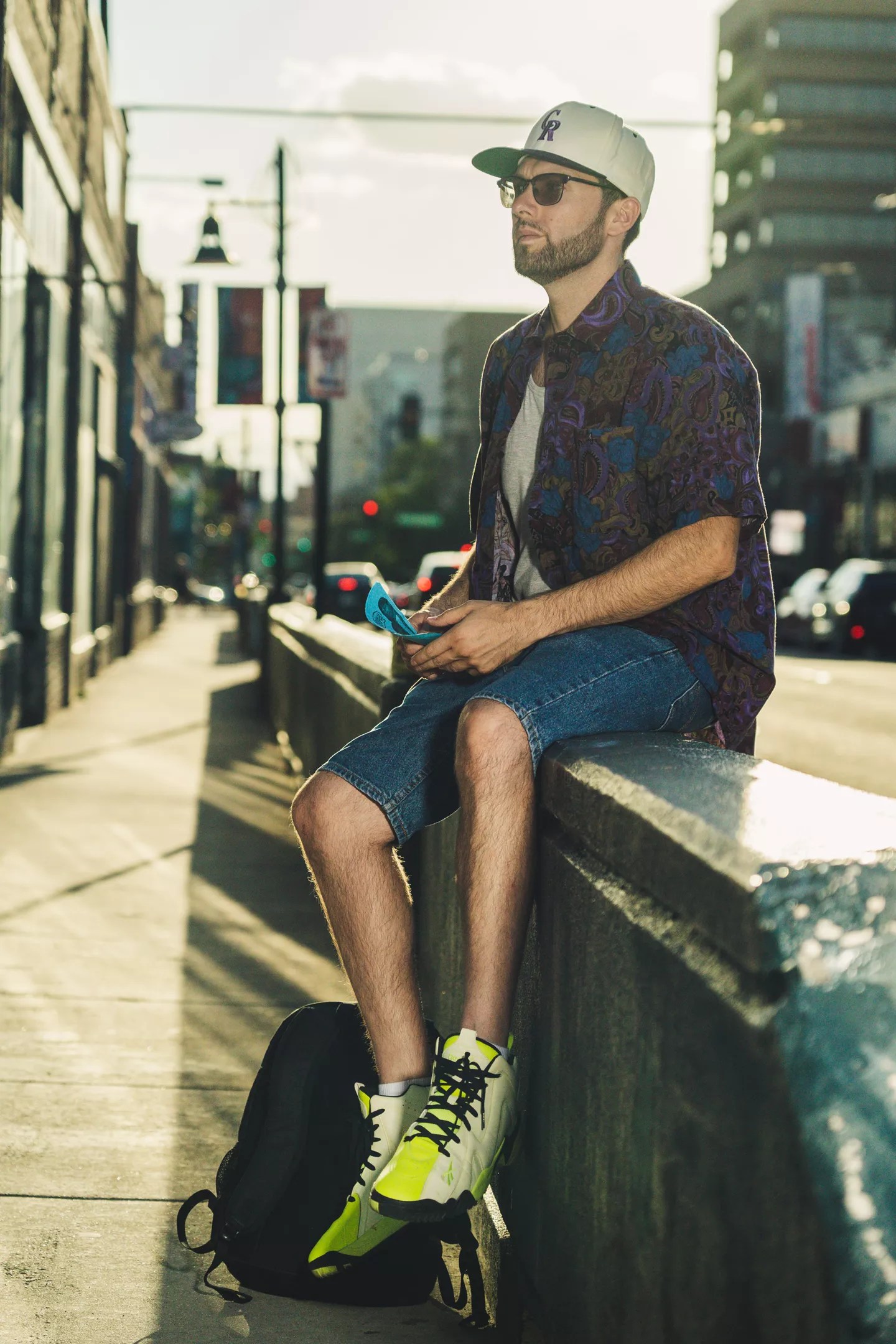
Matt McDonald

Audio By Carbonatix
When Aaron Ladley, aka DJ A-L, was seven years old, he asked Santa for a Salt-N-Pepa cassette tape, and Father Christmas responded favorably. At age eight, he heard Jam Master Jay scratch on a record. Now, almost thirty years later, A-L calls himself an untraditional musician, and he’s bringing an untraditional throwback dance party to Ophelia’s Electric Soapbox on Saturday, August 27.
A-L, who estimates he’s spun more than a thousand sets throughout a decade of throwing parties in Denver, is approaching HYPE’s monthly residency at Ophelia’s as an art installation. “I don’t need to make a killing. I need to make art,” he says. “I’ve been passing out fliers that look bad – a silly ’90s aesthetic. It’s ridiculous to turn a throwback party into a work of art, but I love that type of challenge.”
He hasn’t seen his version of the ’90s at other throwback parties he’s attended in Denver, so he’s creating his own. The event will put an emphasis on turntablism and authenticity, rooted in the foundation of hip-hop culture. “Without Boyz II Men, there’s no Backstreet Boys,” he notes.
As a kid, A-L would use speakers that he pulled out of trash cans, and when he scraped together some money, he bought used turntables from thrift stores. Back then, a DJ had to innovate; there was no YouTube, and there weren’t classes to learn from. The culture was secretive, so you had to be self-taught. “To get a party started, you almost had to become an electrician,” he jokes.

Matt McDonald
His dad didn’t approve of his industriousness and threw his equipment back in the trash, fearing he might electrocute himself. “A lot of adults I was around thought becoming a DJ was a fad, a joke,” A-L remembers.
But nobody disapproved more than his father, who was into Jimi Hendrix and the Beatles, which he considered “real music.” A-L knew he couldn’t declare that he wanted to be a hip-hop DJ. “It would be like telling your parents you were becoming a professional yo-yo player,” he remarks.
“I grew up in a household where you didn’t tell your dad what you were going to do. He told you, and he wanted me to follow in his shoes,” A-L adds. “Unfortunately, that’s not who I am.”
Some DJs give themselves superhero names, such as Stretch Armstrong and DJ Clark Kent. Others might use puns that reference turntables or the scratch, like Oprah Spinfrey and Vinyl Richie. A-L used his initials, which he says reflects authenticity – though it does have one downside: “It’s hard to Google.”
Just as comedians bomb on stage for years before they become experts, DJs, too, must collect their bruises. And similar to comedians, they get immediate feedback. A-L’s big lesson came eleven years ago, during a set at the now-closed Tahona Tequila Bistro in Boulder. He played an old hip-hop record by Boogie Down Productions called “The South Bronx.” It was lyrical, not heavy with bass, but A-L says he hadn’t earned his audience’s permission to play that type of record.
“I tried to educate the audience when I should have just entertained,” he admits.
Within a minute, the dance floor emptied. A-L still remembers two people standing there. “They were just looking at each other, and they started to breakdance, but they didn’t know how.” It was a lesson he never forgot, and a feeling a DJ never wants to experience twice.
DJs can get a bad rap because many people believe they just load music onto their laptops and push buttons. But A-L knows it’s more complicated than that. “Anybody can be a DJ, just like anybody can become a guitar player,” he says. “But you don’t just show up and be great.”
He wants an emotional connection with his audience – a story with tension, peaks and valleys, ebbs and flows. Sometimes it’s attitude and confidence that separates good DJs from great ones. “If you don’t think you’re playing the best music in the world, you’re not doing it right,” A-L states. “A certain amount of arrogance can help a DJ.”
And he recognizes how a record is a piece of history: You might remember who you were with or what you were doing when you first heard it. “A great DJ shares a collection of memories and vibrations with people. You’re in dialogue with your audience,” he explains.
“One time a grown man came up to me crying after a set. He thanked me for playing the songs I played. He said he used to listen to those records with his mom, and it really impacted him,” A-L continues. “That’s what I want – to tap into a memory. Or if I play something they’ve never heard before, I want to inspire them to create something new.”

Matt McDonald
And no one improves their craft by staying comfortable. A-L says that deejaying for audiences that don’t know you or care about you keeps you sharp. “Local talent needs to travel and get out of their comfort zone. Go sleep on couches. Pay your dues. Then bring it back,” he says.
When asked whether he still “digs in crates” – the practice of combing through record store or thrift shop bins for music on vinyl – A-L responds, “I’ve been digging in my crates this entire conversation.”
Wax Trax and Recollect Records are his favorite Denver spots to find the vinyl he spins, but because Colorado is a hub for transplants, he knows that he can’t keep the search local. Recently digging in the Bay Area, Baltimore and Texas, he found music that’s hyper-local to those areas and brought it back to Denver. When he puts on a newfound record, “people lose their mind,” he says.
DJs need to earn the trust of their audience, A-L notes, and even with his experience, the pressure is still on to perform. “There’s always a level of wanting to do your best,” he says. “The butterflies used to be debilitating.” He still goes through those feelings, but now he channels the energy productively.
He uses his home studio to remix mixtapes and compose original music for artists or podcast intros. The studio boasts a pair of Technics 1200s, the industry-standard turntable since the ’70s. Surrounding his crates of records are a Roland TR-808 drum machine that dates to the early ’80s and a Fender Rhodes electric piano. Paintings of A Tribe Called Quest, Run-DMC and Stevie Wonder cover the walls, but a different piece of art stands out. It’s an interactive painting of A-L digging in his crates. The magnetic piece, created by Denver artist Detour, transmits physical touch into an electronic signal that’s routed to a computer processor and triggers a beat when you press on it.

Matt McDonald
Looking back to when his dad didn’t accept him as a DJ, A-L says, “I couldn’t tell him I was going to be a hip-hop DJ, so I showed him, and he’s told me I’ve proved him wrong.”
But you won’t see A-L spinning that infamous Boogie Down Productions record at HYPE’s launch. “That was a traumatizing moment,” he concedes. “But failing makes you a better DJ. I think it makes you a better person in general. Fail and do it different the next time.”
The HYPE launch party, 9 p.m. Saturday, August 27, Ophelia’s Electric Soapbox, 1215 20th Street. Tickets, $24-$28, can be purchased at ticketmaster.com.